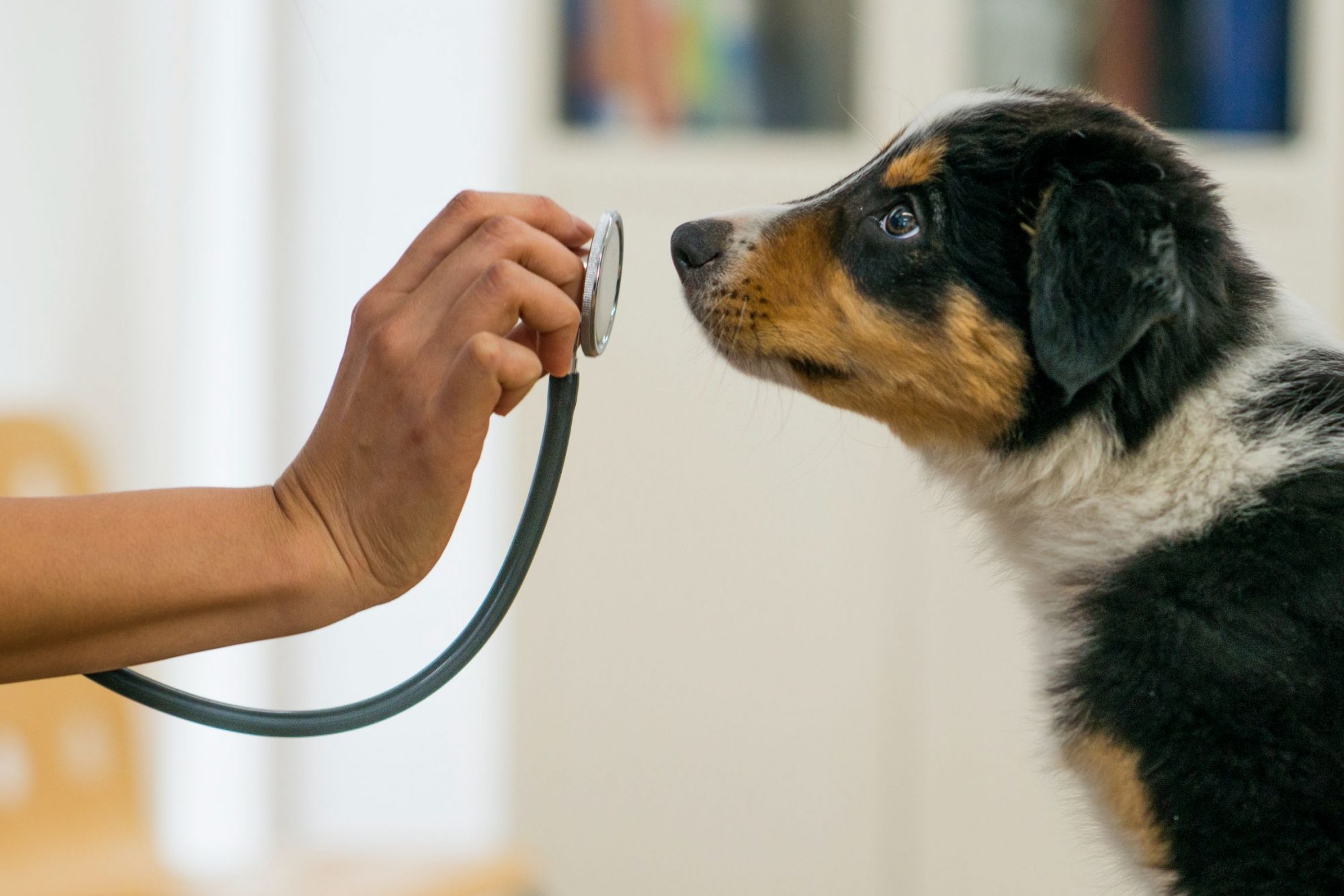Dog Wellness for Any Age, Breed, or Lifestyle

If you’ve owned your dog for a while now, you have likely come to the conclusion that they are the one that owns you. You might have originally thought that your dog would fit right in with you and your family, but it’s your lifestyle that has probably changed to make way for all the dog’s likes/dislikes, needs, and patterns. To that we say, well played, canines.
There are certain elements of dog “ownership” that take precedence to ensure optimal health. Maintaining dog wellness exams is one of many contributions you can make to their overall health, vitality, and longevity, and we’re here to help.
They’re Fine…Right?
We take full advantage of canine wellness exams, and we’re not just talking about the tail wags or the kisses. We view these appointments as special opportunities to monitor your pet’s health and examine them closely for any abnormalities. Disease screening and regular blood work can help us understand what’s going on in a dog’s body. This helps us detect any problems before they become too complicated or expensive, and hopefully reduces any suffering in your pet.
The confirmation that a dog is in great shape and optimal health gives an owner peace of mind. This healthy baseline is what we use in the future if/when there are any changes or shifts in results. When this happens, we can move quickly to get a dog the help they need.
Weight Expectations
The first thing we ask at dog wellness exams is for a pup’s weight. Since even a little extra weight can cause or exacerbate various health conditions, it’s always a good idea to keep a dog at their breed’s optimal weight. We can provide clear guidelines for exercise and nutrition at the next dog wellness exam.
Issues like diabetes, arthritis, cancer, and heart disease are all linked to obesity, a condition that is preventable.
The Priority
Your dog’s dental health is a huge priority for us. By the time you start to notice “doggy breath,” there’s already harmful bacteria flourishing in the mouth. There are four stages of periodontal disease, and most dogs over the age of 3 years old have at least some kind of gum disease or tooth decay.
Regular cleanings under anesthesia and digital radiographs are the best way to prevent tooth loss, pain, and periodontal disease. Oral bacteria can spread throughout the body, so paying attention to oral health can help you can prevent systemic disease in the heart, kidneys, and liver.
Know the Score
Puppies are typically seen a lot in their first year to ensure they get all necessary vaccinations, parasite prevention, the spay/neuter procedure, and a microchip. We see them every 3-4 weeks until about 6 months of age, then again at their first birthday. Dog wellness exams are scheduled once a year until they become seniors (around age 7). An increase to two visits a year can prevent illnesses related to aging.
Some dog breeds are genetically predisposed to various conditions. Knowing this, we can develop a prevention and/or treatment plan that works for your dog.
Investing in Dog Wellness
Staying in front of your dog’s health can save you in the long run. Sure, you can’t prevent every illness or injury but you can definitely influence your dog’s health in positive ways. Maintaining their dog wellness exams is just one of the wonderful responsibilities of ownership, and we are here to help you have the best possible experience.
Give us a call at (210) 681-1391. Our team is happy to help at Leon Valley Veterinary Hospital.


